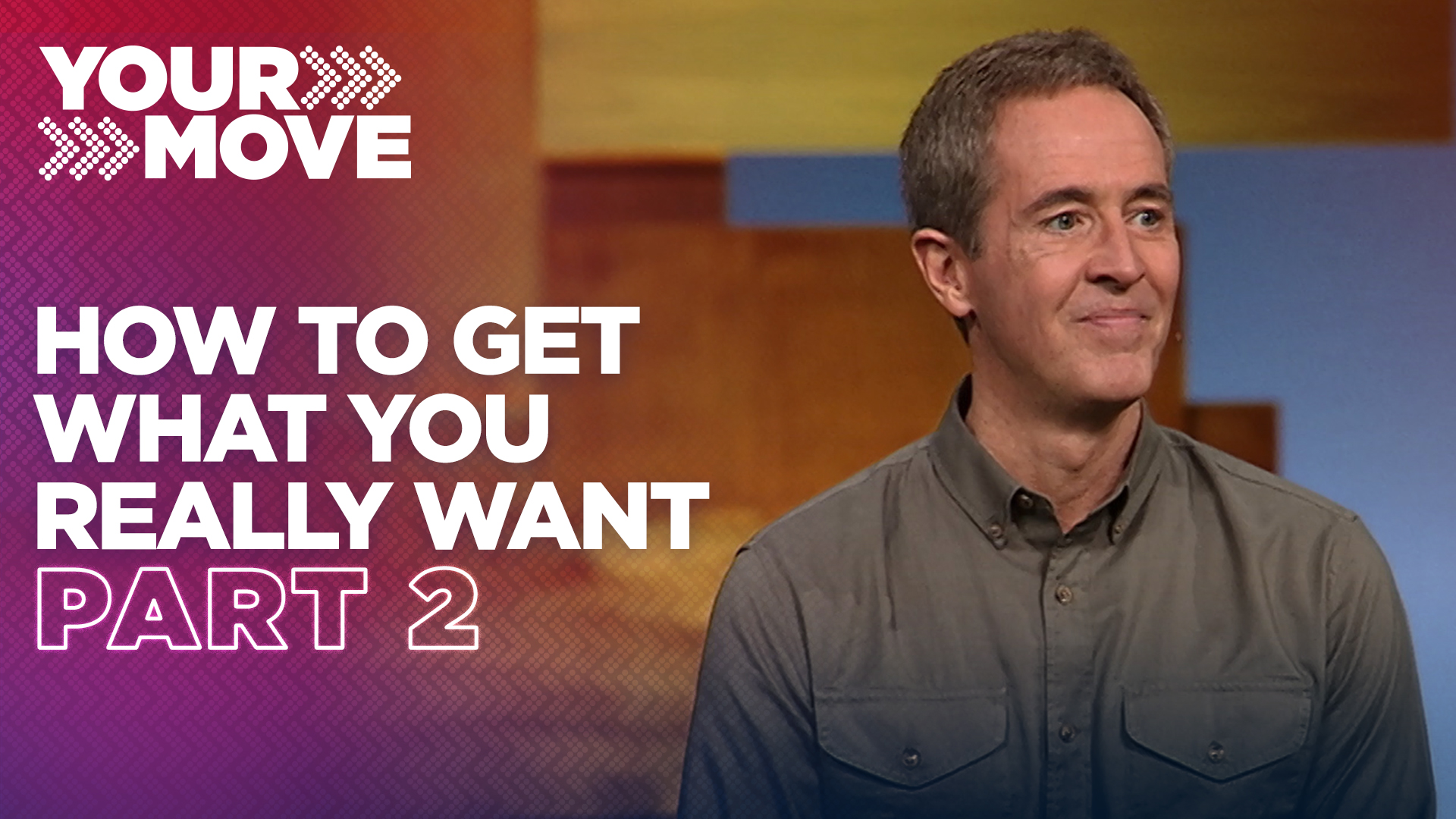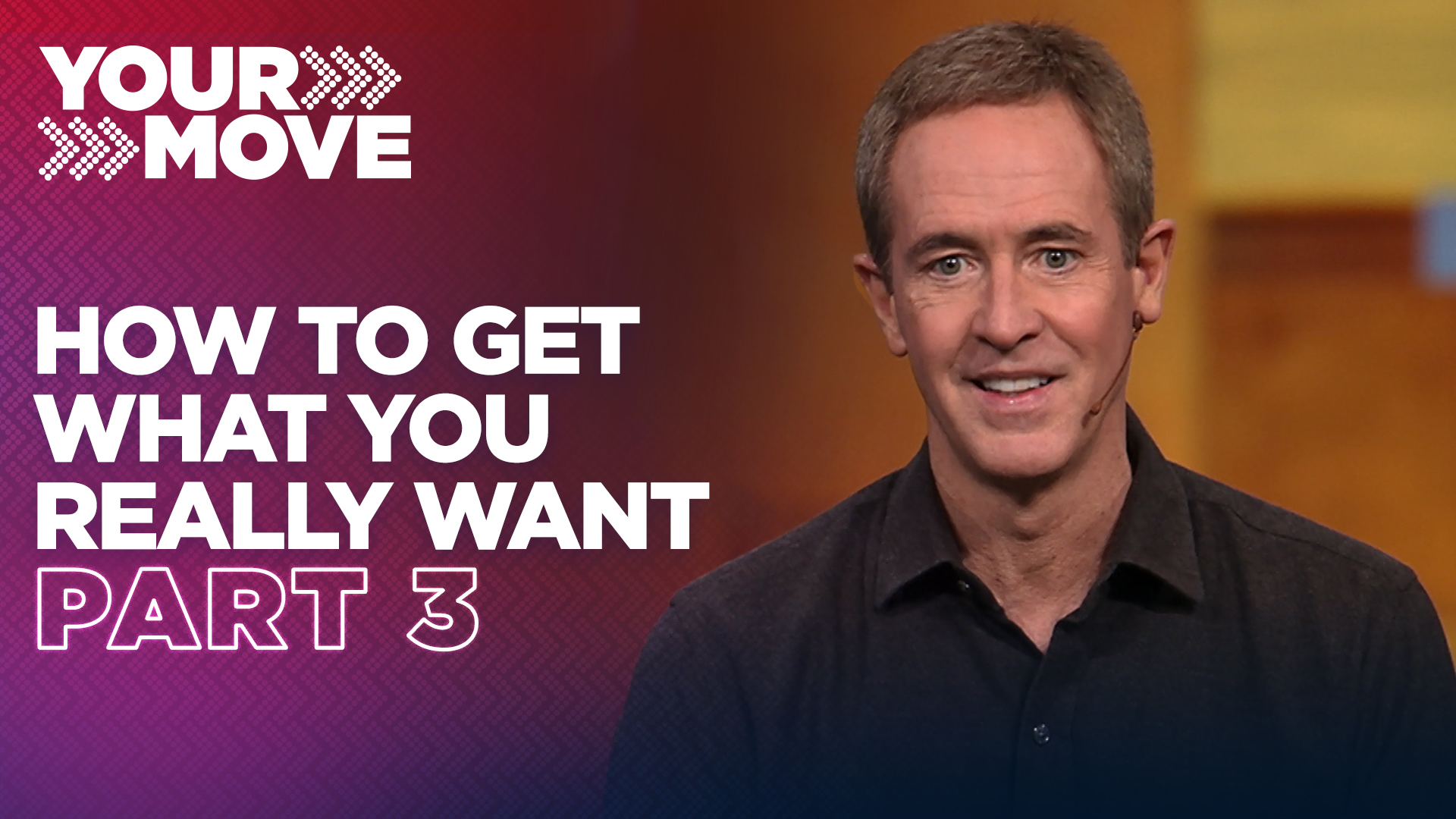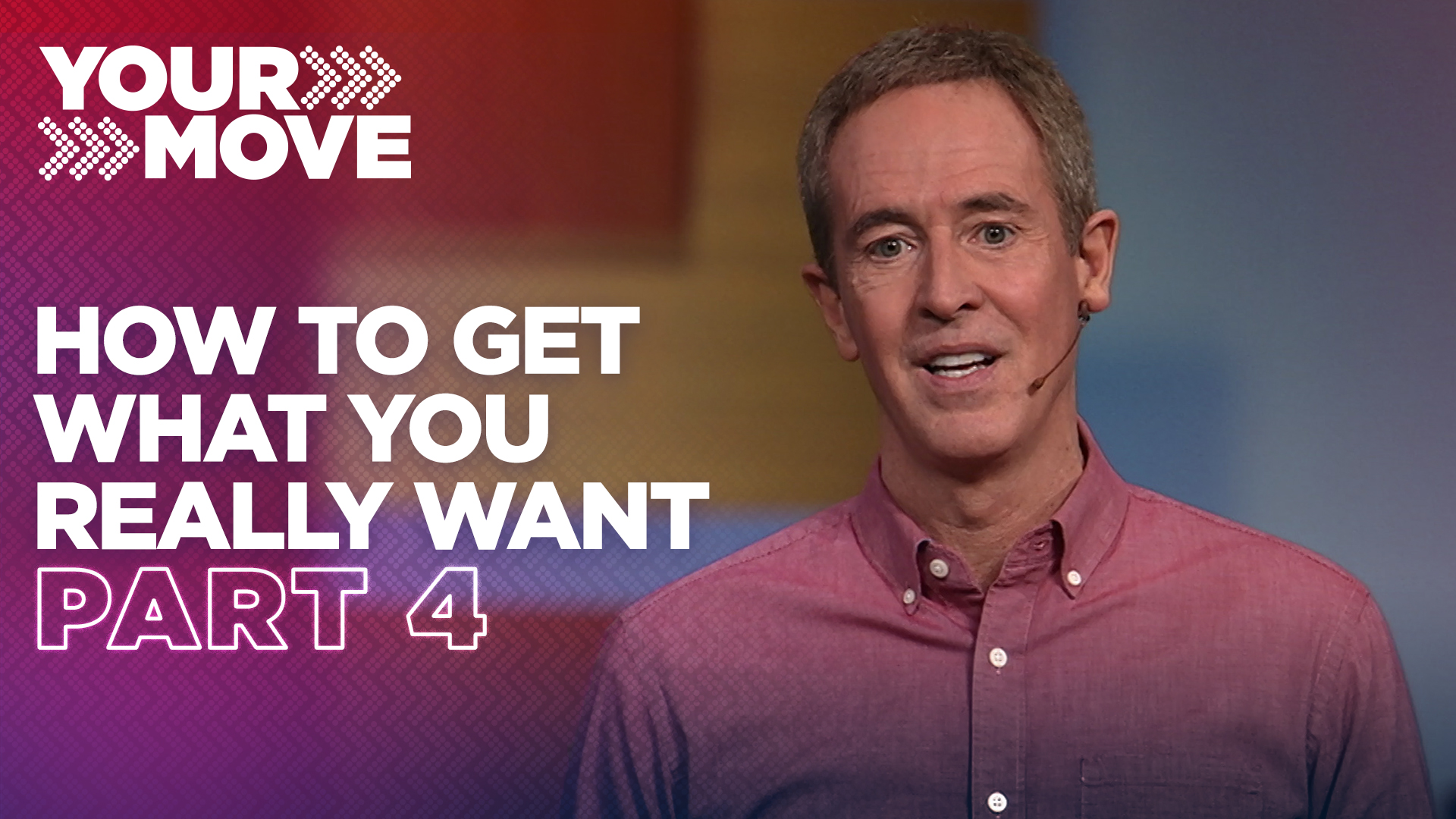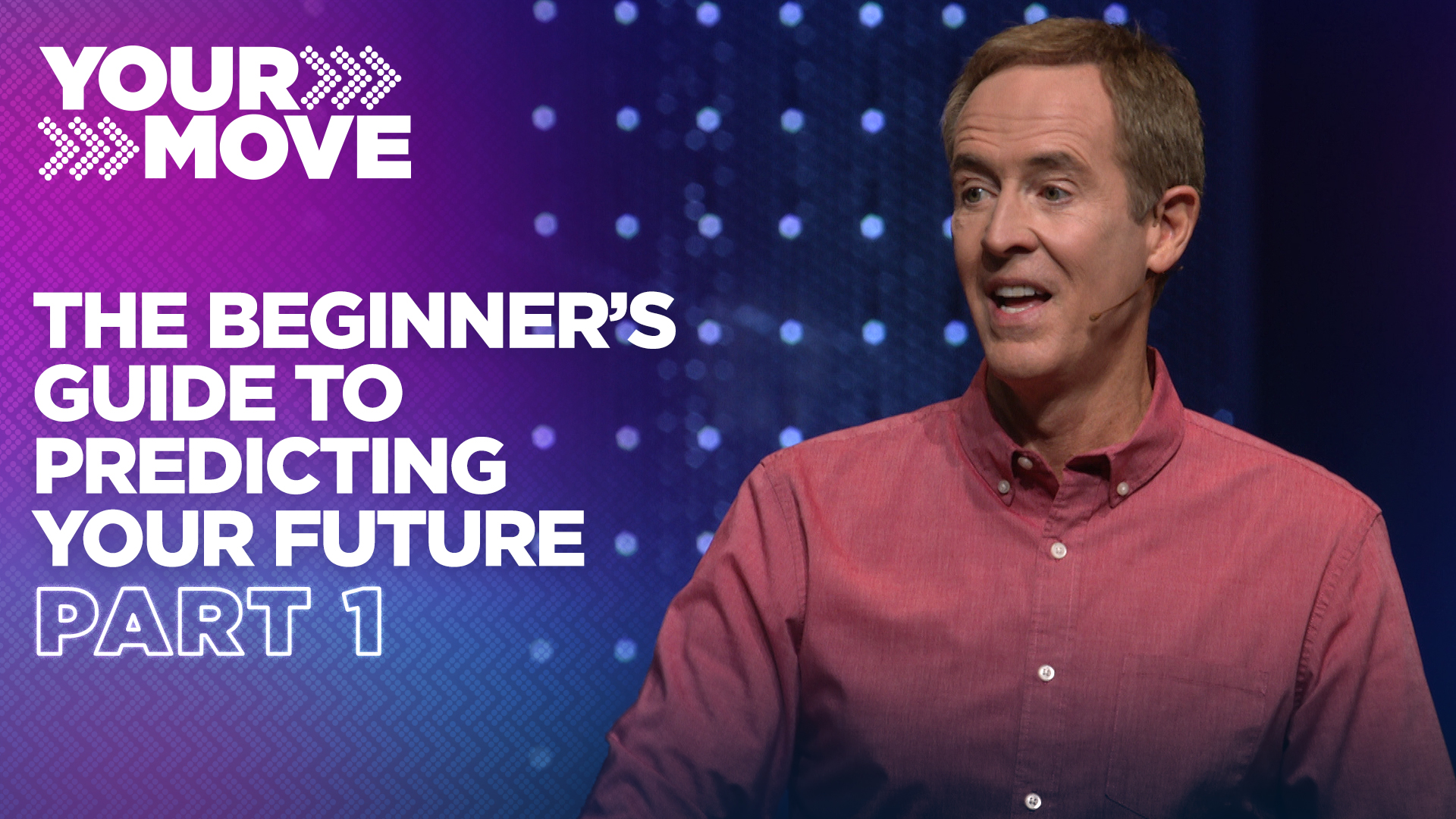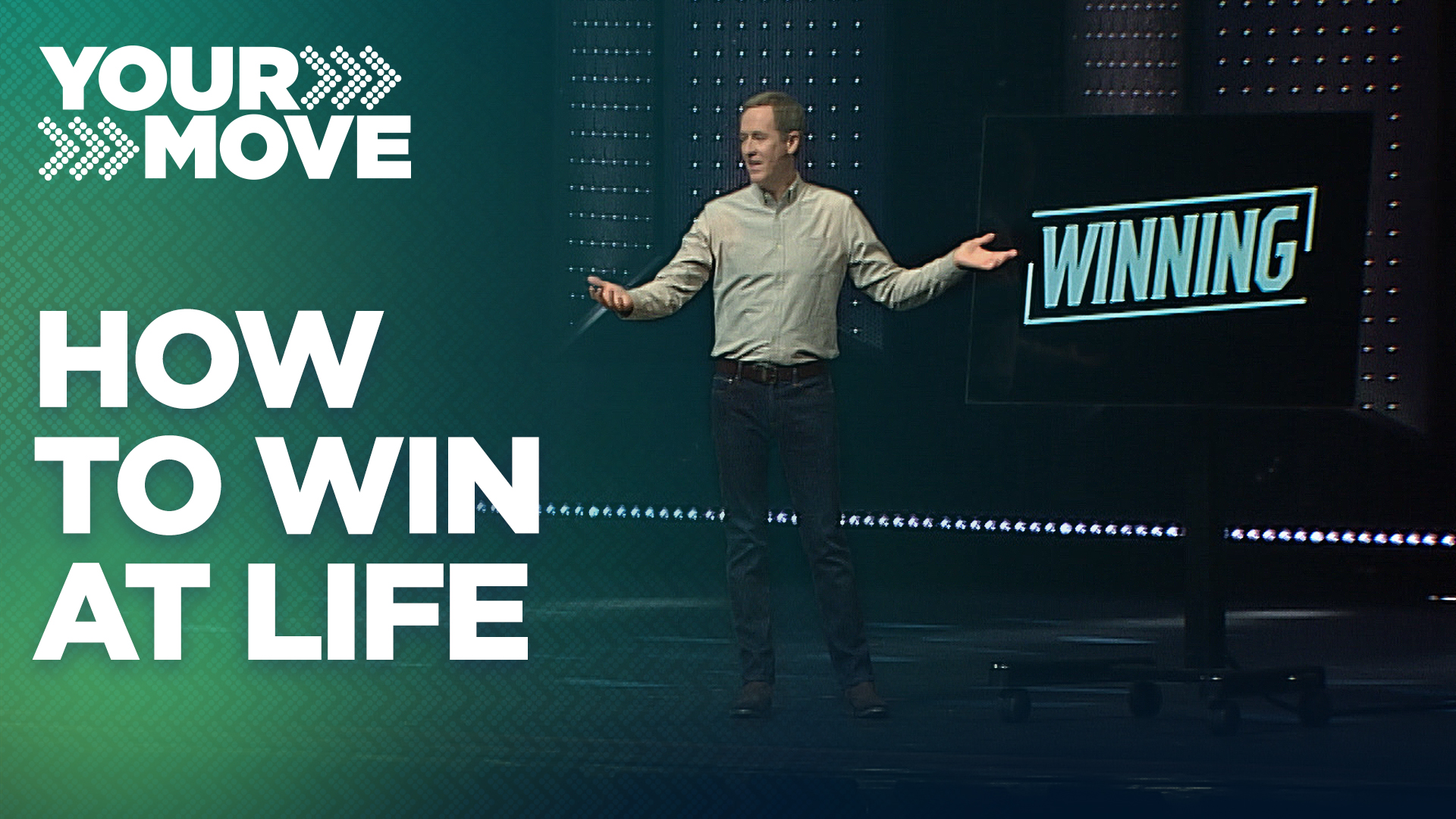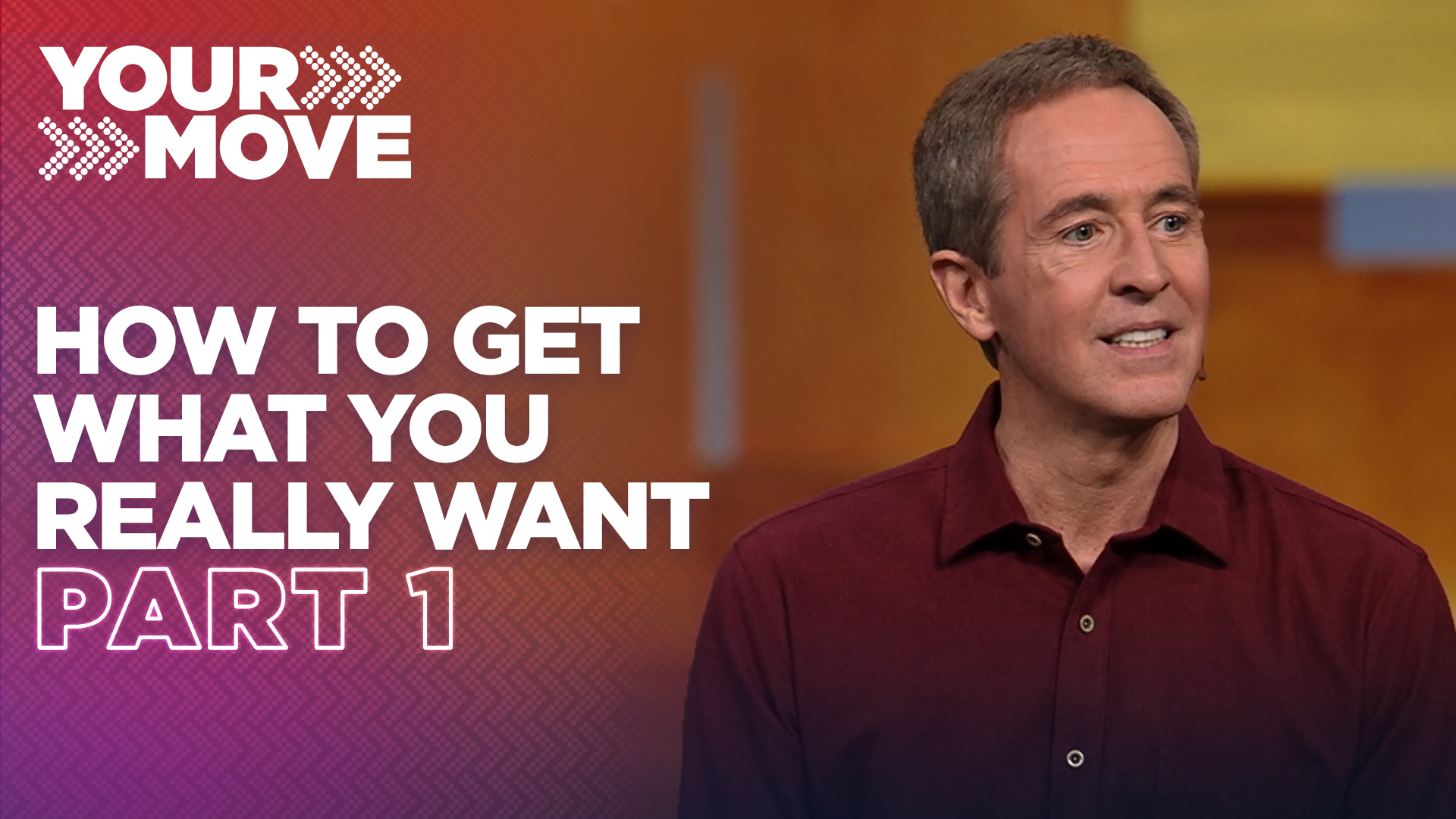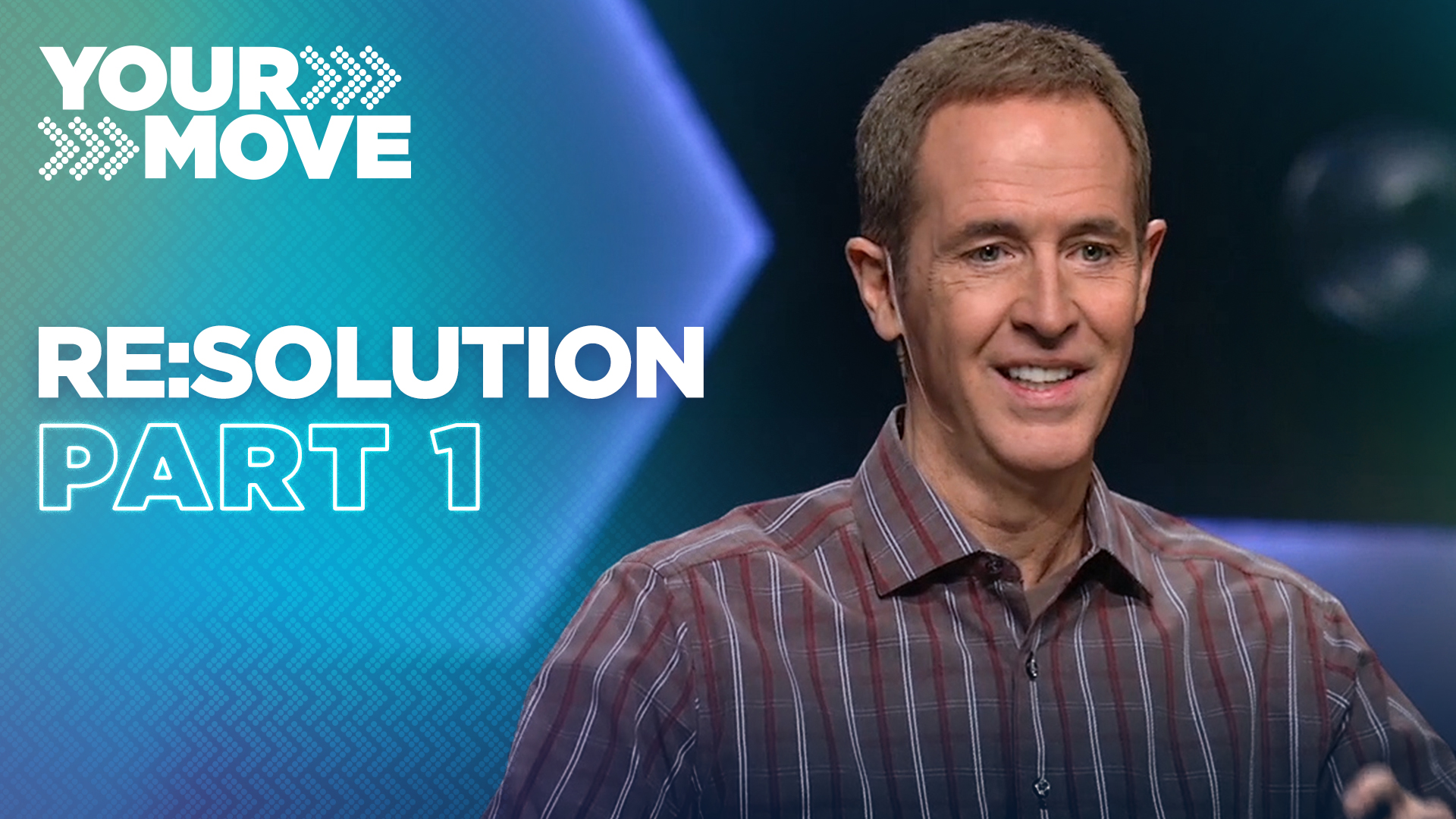What do you want for yourself? Is it a what? Is it a who? And are you sure it’s what you really want?
- What do you wish you had in your life right now?
- Have you ever gotten something you thought you wanted only to discover it wasn’t what you wanted? If so, how did you respond?
- Do you agree that when pleasures (sex, food, travel, entertainment, etc.) become addictive, they lose their gratification? Explain why or why not.
- Andy mentioned that every regret begins with “I want.” Have you found this to be true from past experiences?
- Why do you think our values—the things most important to us—are difficult to identify?
- How could you begin to identify your values?
NOTE: The following content is a raw transcript and has not been edited for grammar, punctuation, or word usage.
What do you want? What do you want? What do you want? And the older you get, the less “what” there is. The older you get, there’s less “what,” there’s something you want, ’cause everybody wants something, but it’s not so much a thing, but there’s a “what,” because everybody wants something, and the younger you are, the younger you are, the more “what” there is, right? I mean, you would answer this question differently when you were 16 than when you were 18, than you were 25, 35, 45, or 55. At every season of life, if somebody says, “What do you want?” You’re gonna answer it a little bit differently. And the older you get, oftentimes, there’s less “what,” but there’s always something that we want. Now, this is a really tricky question, as we’re gonna see. In fact, we’re gonna spend about half our time today talking about what a tricky question this is.
This is a tricky question for several reasons. For one, when I ask you, “What do you want?” here’s an answer you did not give, but here’s an answer that is true of you. One of the things that you want is your way. You want your way. That’s what we all want, we want our way. But as most of us have learned, or as you will eventually learn, or as you’re trying to convince your middle school or high school daughter or son, as long as you insist on having your way, you won’t get what you really want. As long as you insist on having your way, “I’ve gotta have my way every single time. I gotta have my way every single time,” you want your way, I want my way, but if you get your way, you won’t get what you really want. In fact, when we get our way, oftentimes, what happens is we get in our own way, isn’t that true? Every single one of us could tell a story about a time you got what you wanted and it resulted in you not having what you wanted. That you sort of got in the way by having your way. You bullied your way through, you pushed your way through, you bribed your way through, using your big personality, you got you through, you won the argument, everybody shut up and let you do what you wanted to do. And then looking back, your sort of got in your own way by having your way, by getting what you want. There’s a sense in which you can’t really have your way and have it, too. Because this “what do I want” thing is a tricky, tricky question.
The second thing that makes this really tricky is this. We want to do what we want to do, right? When I ask you, “Hey, what do you want? What do you want? What do you want?” Nobody listening thought, “Well, I’ll tell you what I want. I wanna do what I wanna do.” You thought of a thing. You thought of a relationship. But sort of down beneath all that and sort of running around in the background of your thinking, is you want to do what you want to do. But here’s what we all eventually learn. If you always do what you wanna do, you may end up where you don’t wanna be, right? If you always do what you wanna do, you will end up where you don’t wanna be.
I have three kids, and all three of my kids went through a phase where they would ask in their own way, “Do I have to?” I’d say, “I want you to do something, need you to do something.” “Do I have to? Do I have to, Daddy? Do I have to, Daddy?” It took me getting to the second child to finally come up with a really good answer to the question, “Do I have to, Daddy?” So, I practiced on number one. Okay? I finally figured it out with number two, by the time number three came along, I was ready for her. So, here’s what happened, “Daddy, do I have to? Do I have to?” So here’s what I came up with. This may be terrible parenting advice, but it’s just an illustration, so don’t take this for more than it is.
I finally would say, “Look, let me explain something to you. No, you don’t have to. You don’t ever have to do anything anyone wants you to do. After you get past about this tall, no one can make you do anything. You can just lay down on the floor and refuse to go on vacation, refuse to go to school, refuse to clean your room, refuse to brush your teeth, refuse to come to dinner, refuse to take your plate to the kitchen. From now on, at this point, now that you’re old enough to say, ‘Do I have to?’, the answer is, ‘No, you do not have to. Because no one can make you do anything. At this point, people can only keep you from doing things.'” And this is when I really got their attention, parents. I said, “This is what prison is for.”
[laughter]
See, this is good. This may be worth the whole message right here. I said, “Let me explain how the world works. See, you can’t make an adult do anything, you can only keep an adult from doing things.” It was just so brilliant, I just wish I’d had it for all three.
But anyway, the point is, the point is, there’s something in all of us that we wanna do what we wanna do, but if you always do what you wanna do, you will limit your options. You will end up in a place you don’t wanna be, you will have fewer options, not more. That’s why this whole “what do you want?” question is just so tricky. Here’s another toxic one. This is a tough one. You know what we want? We want perpetual pleasure. Now, I tried to come up with a different word than “pleasure,” because whenever you throw out the word “pleasure,” people immediately think what? Right, binging on Netflix. Exactly. [laughter] That’s the first thing that comes to mind.
[laughter]
No. I heard someone say it. Right. We just [laughter] think “sex,” but… Okay, but there’s lots of different kinds of pleasures, believe it or not. So there’s lots of kinds of pleasures and here’s thing. Here’s what you want and here’s what I want. Whether it’s food, whether it’s vacation, whether it’s travel, whether it’s sex, whether it’s some sort of entertainment, whether it’s alcohol, whatever it is. There’s something that brings everybody pleasure. And we want to be pleasured. We want to… Whatever degree we can crank it out or afford it or create the margin or a life for it, we want perpetual pleasure, maybe golf. It may be a sport. It may be a pastime. It may be photography, just brings you pleasure. We just want perpetual pleasure. But here’s the thing, and you know this. The challenge is that perpetual pleasure of any sort, whether it’s legal or illegal, is addictive. And pleasure that’s addictive ultimately undermines the pleasure, which isn’t what we want. In other words, you can get so much of a good thing, even a good legal thing, you can get so much of a good legal thing that, you know this, it eventually loses its pleasure. Or worse than that, it begins to control you.
And here’s something that may be true of you. Maybe something that started off as a pastime you’ve discovered was actually a pathway to something that controls you. And what was initially pleasurable, now, it controls you. And you wish you had never gotten the thing that you wanted. And you wish you had never repeated the thing that you wanted. And now, you don’t enjoy it at all. Because that’s the nature of pleasure. And that’s why the question, “what do you want?” is such a tricky question. And then there’s this one. “What do you want?” “Well. I don’t know what I want, but I know this, I want it now. Once I figure out what I want, I’ll tell you when I want it. I don’t know what I want, but I know when I want it. I want it right now.” But isn’t it true that what we want now isn’t always what we want later? Again, it takes five minutes, any of us could stand up and tell a story about something I wanted, absolutely had to have it right now, had to have it right now, and then, ultimately, I didn’t want it later. And here’s something that we all learn. That later is longer.
So, unfortunately, again, we’ve all got a story about something, I just had to have it now. I just had to have him now, her now, that opportunity now. And now, I wish I had not gotten what I wanted. Because later is longer. What we want today often ends up in the way of what we want tomorrow. What we want today often ends up in the way of what we really want.
Don’t high school reunions teach us this? For those of you who’ve been to a high school reunion. Nervous laughter, isn’t that right? Don’t high school… Shouldn’t high school reunions make most of us grateful for unanswered prayer?
[laughter]
Right? Thank you, “Thank you, God, I’d just thought he was the one. He was not the one.” And then you gotta say something nice, so you say, “My, how you’ve matured.” Yeah.
[laughter]
Yeah. What we want now, what we’re sure we want now isn’t necessarily what we want later. What we bought on the credit card then isn’t what we’re wearing now. What we financed then isn’t even what we wanna drive now. It’s a tricky thing. And then here’s maybe the most painful one of all. Does it regret… Now just think about this. And I hate to bring up regret, but doesn’t regret… If you think about your greatest regret or your second greatest regret, ’cause the big one is just too painful, isn’t it true that regret always begins with “I want”? Doesn’t every single regret begin with what I want? What do you want? Here’s what I want. Oh, I regret that I ever got what I wanted. Because regret begins with what I want, but regret always ends like this. Regret ends with, “I want to go back in time and not get what I wanted.” Regret always ends up with, “I would love to be able to go back in time and not say, ‘I do.’ I’d like to go back in time and not sign that lease. I’d like to go back in time and not move my family and take that job. I’d like to go back in time and just tell those friends, ‘You are not my friends anymore.’ I’d like to go back in time and break up about a month earlier. I had what I wanted, but as a result, I don’t have what I want, because I got what I wanted, which isn’t ultimately what I wanted.”
In fact, regret is really getting what you wanted, but not having what you want. Regret is the elimination of options. It’s the inability to go back and actually get what you want, because you got what you wanted. So, what do you want? What do you want? It’s tricky, isn’t it? You gotta be careful what you want for. Because, review, if we always get our way, we get in our own way and we lose our way. And if we always do what we wanna do, we end up in a place that we don’t necessarily want to be. We lose the good options. And if we always get what we want now, it may keep us from having what we really want later.
C.S. Lewis, British author, lived during the second World War, wrote lots of books, most of ’em are small, but it takes a long time to read ’em, if you’ve ever read C.S. Lewis. The cool thing about C.S. Lewis, if you’re not a believer, not a Christian, or you’re not sure, or not religious, C.S. Lewis was not raised going to Sunday school, like some of us think about the church. C.S. Lewis was an adult and was an atheist, was agnostic, and became of Jesus follower as an adult. So consequently, he had some very unique insights, because he doesn’t make some of the same assumptions that many of us make that grew up in church. So he had some very interesting ideas. And one of the most interesting ideas he had of all of his ideas was what he thought hell would be like. So he wrote a little book called The Great Divorce. And you’re thinking, “There’s no such thing as a great divorce,” and you’re right. It’s not even about divorce. In fact, everybody wishes he’d titled it something else.
Because nobody picks up a book The Great Divorce, wow, The Great Divorce. But it’s a book about hell. And it’s his version of hell, and he strips away all the medieval, all the Book of Revelation imagery of hell and fire and brimstone and Satan running around with a big pitchfork and a pointy tail. There’s none of that. His version of hell, based on what he had observed and based on living through the second World War and just all that carnage and all that destruction and the tension that they lived with day after day after day. His version of hell was a place where everybody got everything they wanted, simply by thinking of it. To which, our initial response is, “Are you kidding me? That is H-E-A-V-E-N. That is heaven, to have everything I want just by thinking of it.” And that’s the point of his book, is that we think that’s heaven, he says, “No, that’s actually hell.” And then in this book, he kind of teases out what it would look like for society, where everybody could get everything they wanted just by thinking of it. And in hell, the way he describes it, nobody can get along. Because nobody needs each other. Because you can have everything you want by thinking of it.
And his point is our point, that this want thing, it’s tricky. It’s tricky.
Now, the good news is we get some other direction other than C.S. Lewis. James, the brother of Jesus, And even if you’re not a Bible reader, you should at least go read the Book of James, because this is something that the brother of Jesus wrote, and James did not follow Jesus during Jesus’ ministry. James shows up late to the game. He kind of thought his brother was crazy, which is understandable when you hear some of the things that Jesus taught. James became a leader in the church, he declared, this is amazing, that his brother, Jesus, was his Lord. And the thing that made the difference was when Jesus rose from the dead.
So anyway, James, the brother of Jesus, writes a letter to Christians in general, it gets copied and distributed all over the world, and we’ve eventually ended up with a copy that becomes part of our New Testament. And in this little letter, he addresses this issue of what we want and how tricky it is to figure out what it is in the world, what in the world, what is it that we really, really, really want? And he starts with a different question. He doesn’t start his letter with what he wants. Here’s how he starts his letter. He asked a different question. He says this, “What causes fights and quarrels among you? What causes fights and quarrels among you? Specifically, what is the source? What is the place of origin?” And his answer to this question, strangely enough, is, “What you want.” It’s what you want. That there’s something you want, and when you can’t get what you want, that spills out on the people around you.
Here’s what he says. He says, “What causes fights and quarrels among you? Don’t they come from your desires or your wants? That battle within you?” He says, “Inside of you and inside of me, there is a war of wants.” I want so many different things. I want so many different things from so many different people, I want people to act a certain way, I want people to respond a certain way, I wanna have certain things. He says, “In all of us, there is a bundle, a barrel full, a basket full of wants, and those desires battle within us, and eventually, they spill out on the people around us.” So he says, “The source of all your tension, relationally,” the source of all your marriage problems, the source of the conflict between you and your son or your daughter, or your parents, or your sister-in-law, or whoever it might be, he says, “Ultimately, the source is what you want, and what they want, and when you can’t get what you want, there’s conflict.”
Now, here’s the thing. When you hear that, there’s some of you, and you’re exactly right, so I’m not trying to be insensitive, there are some of you that would say, “Andy, it’s not that I’m not getting what I want, it’s that I’m not getting what I deserve.” But don’t you want what you deserve? Yes. Well, there it is. It always comes down… James is exactly right, that the source of every single fight and quarrel is their desires warring, as there’s things I want that are legitimate, there are things that I want that aren’t necessarily legitimate, but the source of all the fighting and all the quarrel is somebody is not getting what they want. And that those warring wants eventually spill out on the people around us. What’s his point? His point is, this whole want thing, this whole desire thing, is tricky. He continues, he says, “You desire,” or you want, “You desire, but you do not have,” in other words, you want something, you can’t get it, so you kill! To which we just check out and we go, “No, we don’t kill.”
Now, this is hyperbole, and here’s how I know that. He’s not writing this to an individual, he’s not even writing this to a specific group. He’s just writing this to Christians in general. And so, this is the use of hyperbole, to get our attention. But he’s not that far off. Because anyone who’s committed a murder, they were trying to get something, chances are, that they wanted. His point is, this can lead to murder. But let’s back it up and look at it within the context of your relationships and mine. I bet you’ve seen somebody want a marriage to death, because they wanted something they weren’t getting, and they wanted it and wanted it and pressured and put expectations on, and pressured and put expectations on, and finally somebody left, because they wanted that marriage to death. You’ve seen people, because of their desires and their wants, kill an opportunity, kill a deal, kill a college scholarship, kill a profession, kill a franchise of some sort. Obviously, we’ve seen uncontrolled wants and desires kill political aspirations and political careers and athletic careers, and we could go on and on and on and on and on.
And James’ point is simply this, that if this gets out of control, if you don’t kinda harness in your wants, if you don’t understand what’s behind the question, “what do you want?” and if you don’t understand what’s going on in the background of your heart and your mind in terms of what it is you desire, you have the potential, I have the potential, we all have the potential, to destroy the things that are most important to us. He continues, he says, “You covet,” he uses the word “covet,” we don’t use that word much anymore. And when we think “covet,” we think something internal, but he doesn’t, he’s not thinking internal. He says “You covet,” which really means to “pursue, to go after, to pursue hotly,” there’s something you want so you just go for it, you keep pushing, pushing, pushing. You keep asking, asking, asking. You’re just not gonna let go. He says, “You covet, but you cannot get what you want,” because at the end of the day, we get what we want, it’s not what we want. We get what we want now, but it’s not what we want later. We get what we want now, but it ruins the relationship and now we don’t even enjoy what we have. We get what we want now, but now I just can’t get enough, and I just can’t seem to be satisfied, and it doesn’t satisfy the way that it used to satisfy.
James says, “You covet, you pursue it, you chase it, and even then, you still don’t get what you want. And so, you quarrel, and you fight,” that is, you blame and you blame and you blame. If it weren’t for her, if it weren’t for them, and if it weren’t for our country, and if it weren’t for the Governor, if it weren’t for the President, if it weren’t for my boss, if it weren’t for society, if it weren’t for all of these things. So here’s the summary. Getting what we want can be a problem. James says not getting what we want creates conflict. And that’s why the name of this series is not “How to Get What You Want.” Because I’m not even sure you should get what you want. I think, half the time… I’m grateful, for many unanswered prayers that I’ve prayed, that I thought, for sure, I knew what I needed and, “God, here’s what I want You to do and here’s what we should have,” I would have been driving a Porsche when I was 16 years old. Because I used to go by the Porsche dealership over at Northlake not too far from where I went to high school and just sit there in the parking lot and look at those cars and tell, “God, I’d be a missionary if only I could drive a Porsche in high school.”
[laughter]
We’re all grateful for unanswered prayers. But that’s why I didn’t name this How to Get What You Want, it’s entitled, How to Get What You Really Want. And here’s why, and this is so important. If you haven’t been paying attention, I hope you’ll tune back in, whether you’re a religious person or not, Christian person or not, it doesn’t matter, this is for all of us, this is for the human race. Most of us do not know what we really want, because we are so distracted by what we want. Most of us do not know what we really want, because we are so distracted by our desires and our appetites. And we are so distracted by the things that are offered to us to satisfy those desires and to quench those appetites. You see, there’s no place in society, there’s no place you can go, that’s gonna help you discover what you really want. But we’re gonna talk about why this isn’t on in week three, but I’ll just give you a heads up.
The reason that no one will help you with this is because it’s very difficult to market. What is easy to market is what you want, what you can hold, and what you can have now. So there’s nothing wrong with any of that, as we’re gonna see, but the point is, if you spend your whole life and I spend my whole life simply being enamored with what I can have now and what I think I can get out of a relationship now, I will miss and you will miss the joy of experiencing what you really, really want. Most people don’t know what they really want, because most people don’t stop long enough to figure it out. Look up here. And if you do not figure it out, you will not figure it out. Because no one can figure this out for you but you. And you can spend your whole life and get to the end of your life, and you’ve seen this, maybe, with your parents or father-in-law or mother-in-law or an aging friend.
They get to the end of their life and suddenly, there’s all of this clarity about what really matters, what they should really have wanted, but they’ve lost the opportunity. Because they fell into the same trap many of us are in right now, they were so distracted by the initial want. The initial answer. The right now. The “What can I get now? What can I get out of this now? What can I get from you now?” And here’s what we’re gonna discover together.
What we really want, what we really want, what you really want, what you really want, what we really want, lurks in a realm we rarely explore. And this is why you could spend your entire life wanting a lot of things, and wanting a lot of things from relationships, and getting what you think you want, and never get what you really want, because it is an unexplored realm.
And again, no one is gonna help you with this. No one is gonna focus your attention on it. This is something you have to do. But here’s the great news. This is the realm that Jesus constantly points us toward. This is the realm that Jesus constantly taught toward. This is the realm that Jesus was constantly trying to funnel the attention of his disciples and those of us who read the Gospels toward. That Jesus wanted us to know and wanted us to understand that what we initially want isn’t even what we really want. But there is a realm, and lurking in that realm is what we really want. And to that end, James wraps up this discussion by saying this. He says, “You,” back to us, “You do not have,” and I added what you want. You gotta be careful adding things to what James says. He’s the brother of Jesus and he understands, I’m just trying to make it clear, if you’re listening. “You do not have what you want,” that’s what the implication is, “you do not have what you want, because you do not ask God.” [chuckle]
When we read this, there’s one of two answers. One answer is, “Well, no, I haven’t asked God, because I already know what God is gonna say.” Right? How many times do we hear that from our kids, or how many times do you say that to your parents? “Well, I’m not gonna ask you, ’cause you’re just gonna say no. You’re just gonna say no, you’re just gonna say no.” So James says, “One of the reasons you don’t have what you want is you haven’t asked God,” and what you say, “I’m not gonna ask God for that, God’s just gonna say no!” The other response to you haven’t asked God is, “Oh, yes, I have. Oh, yes, I have asked God. And God has not come through for me.” So James says… This is so insightful. He says, “You do not have what you want because when you ask, you do not receive, because you ask with wrong motives. That you may spend what you get on your pleasures.”
Now, little tricky thing going on here I wanna explain real quick. The Greek text does not have the phrase “wrong motive.” This is an interpretation of a Greek term, and all the English translations of the Bible kinda struggle with how to interpret what James is saying here.
So I’m just gonna give you the literal translation, because I think this is the best translation, and it’s awkward, it’s clunky, it’s not good English, but I think it makes the point better than “wrong motives.” Here’s what James literally says in the text that’s so powerful. “When you ask you do not receive, because you ask badly. You ask wrongly. You don’t ask correctly.” It has nothing to do with motives, necessarily. It has everything to do with what it is we tell God that we want. And he’s getting at this very thing we’re talking about, that our wants are oftentimes so surface, they’re not what we really want. They’re simply what we’ve been told we need. It’s that we’re buying into that whole life, “If only I had, if only she, if only he, then I would be fine.” He says the reason you ask God and don’t get what you want from God is because you ask badly, that you may spend what you get on your pleasures.
James is referring to, this is important, James is referring to our wants that serve no other purpose than to temporarily satisfy a want. He’s saying, “The reason that God’s not gonna give you what you want is because you’re still asking for things that are only gonna temporarily satisfy and address what it is that you want now, but you still haven’t discovered what you really want. You’re in this endless cycle, endless cycle, endless cycle of wants.” And here’s the great news. This is why I wanted to talk about it for four weeks. The great news is, God your Father, God your Heavenly Father, wants more. And He doesn’t want more from you, because he’s God, He doesn’t need anything from you. And a good parent never tries to extract something from their children. God wants something for you. And lurking in the shadows, just outside, just beyond your peripheral vision, just outside what we focus on because nobody helps us focus on it, lurking in the shadows of what we want is what we value. What’s important. What’s really important to us.
So here’s what we’re gonna do for the next few weeks. We’re gonna explore, and I wanna do my best to help you discover, what it is that you really value. Now, again, this is so apparent when somebody brings it front and center, this is so “duh,” this is so obvious, this is so, “Hey, wait.” This is so what you say you want, but why do you want that? “Well, because,” “Well, why do you want that?” “Because, because, because.” And eventually, you get down to what it is you really value. And here’s why this is important. You’ll never get, you will never get what you really want ’til you discover what you really value. You could spend your entire life chasing an endless list of wants, whether they’re relational wants, physical wants, things you can buy, things that you manufacture, things that you find, things that you have travel, things that you collect. You can spend your entire life, come on, your entire life chasing down an endless list of wants, but if you have never taken the time to discover what you really value, you will not get what you really want. You will never have, you will never have what you really want until you discover what you really and truly value.


